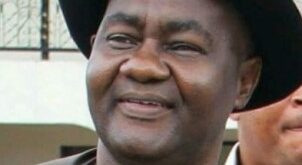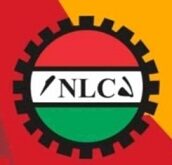By Tunde Uchegbuo
The alleged wanton destruction of lives and property by members of the Indigenous People of Biafra (IPOB) in different parts of Rivers State, and the utterances and insults of its leader, Nnamdi Kanu, are capable of instigating ethnic disaffection between Rivers indigenes and Igbo residents in the state if these provocative activities of Kanu and the IPOB are not rebuked.
These unwarranted attacks on Rivers State are seriously viewed as politically orchestrated by some faceless financiers to coerce Rivers people into IPOB’s agitation for self-determination. This assumption is widespread among the state’s indigenes, with an equal determination to vehemently resist such moves.
The position of the governor of Rivers State, Nyesom Wike, on this matter, particularly on the heels of the October 20, 2020 attack in Oyigbo and other parts of the state, allegedly by the IPOB under the guise of the EndSARS protest, and the subsequent proscription of the group in the state should serve as a sign-post that a repeat of such rebellious behaviour will be aggressively countered.
It therefore behooves on Igbo indigenes who are legitimately earning their livelihood in the state to quickly call on Kanu and his indoctrinated supporters to restrict their actions to the Biafra enclave, or channel their actions through globally recognized processes of agitating for self-determination instead of unleashing mayhem on Rivers State in whatever guise.
This advice has become imperative in view of the fact that Kanu does not live or do business in Rivers State, and will not be affected in anyway in the event of any reprisal action by the already offended youths of the state.
Furthermore, the purported hoisting of the flag of a country that exists only in the imagination of its agitators at the Ikoku spare parts market, Oyibo, and other parts of Rivers State, is an affront on the state, especially those who fought for its creation.
More so, the number of young and vibrant Igbo youths whose lives had been cut short by the actions of Kanu calls for a post-mortem to ascertain the sincerity of this struggle. For example, a South-East based coalition of human rights organizations estimates that about 80 members of IPOB had been killed during different agitations, just as Amnesty International claims that 150 pro-Biafra supporters had been killed in different crackdowns between August 30, 2015 and February 9, 2016.
Sadly, while the lives of these young men, many of whom are the bread-winners of their families are cut short, their self-proclaimed ‘Messiah’ is globe-trotting with funds raised by his fellow Igbo compatriots for the struggle for Biafra. Although many of the youth appear to have realised the antics of their kinsman in defrauding them, there is still a large army of supporters who appear to have been programmed with Kanu’s ideology, and are activated at the push of a button from his oversea residence.
To put the records straight, Kanu and IPOB have the right to seek for nationhood, just as groups across the globe are claiming independence and recognition. For instance, the pacific island of Bougainville voted to separate from Papua New Guinea last year. The principle of self-determination is enshrined in Article I of the Charter of the United Nations. The principle was also incorporated into the 1941 Atlantic Charter and the Dumbarton Oaks proposals which later became the United Nations Charter. The inclusion of the principle of self-determination in the UN Charter marks the universal recognition of the principle as fundamental to global peace.
By that provision, people have the freedom to determine their political status, as well as their economic, social and cultural development. The right to self-determination of peoples is equally recognized by other international and regional instruments, including the African Charter of Human and Peoples’ Rights of 1981.
However, it is informative to explain that most of those agitating for all manner of marginalization are now leveraging on digital technologies to attract global attention, without putting the lives and property of law abiding citizens at risk. An example is Democratic Tsunami, a creative, novel and non-violent form of disruptive protest that is used to articulate a voice when those in power appear not interested.
This initiative is created in Catalonia to promote the Catalonian independence movement using Twitter to highlight the effectiveness of peaceful civil resistance without being violent, and it is surprisingly yielding positive outcomes. Consequently, the IPOB and Kanu should learn from this, while also limiting their agitations to their Igbo ethnic nationality and should desist from desecrating the peace in Rivers State.
 PH Mundial – Port Harcourt Online Newspaper News Across The Region
PH Mundial – Port Harcourt Online Newspaper News Across The Region




